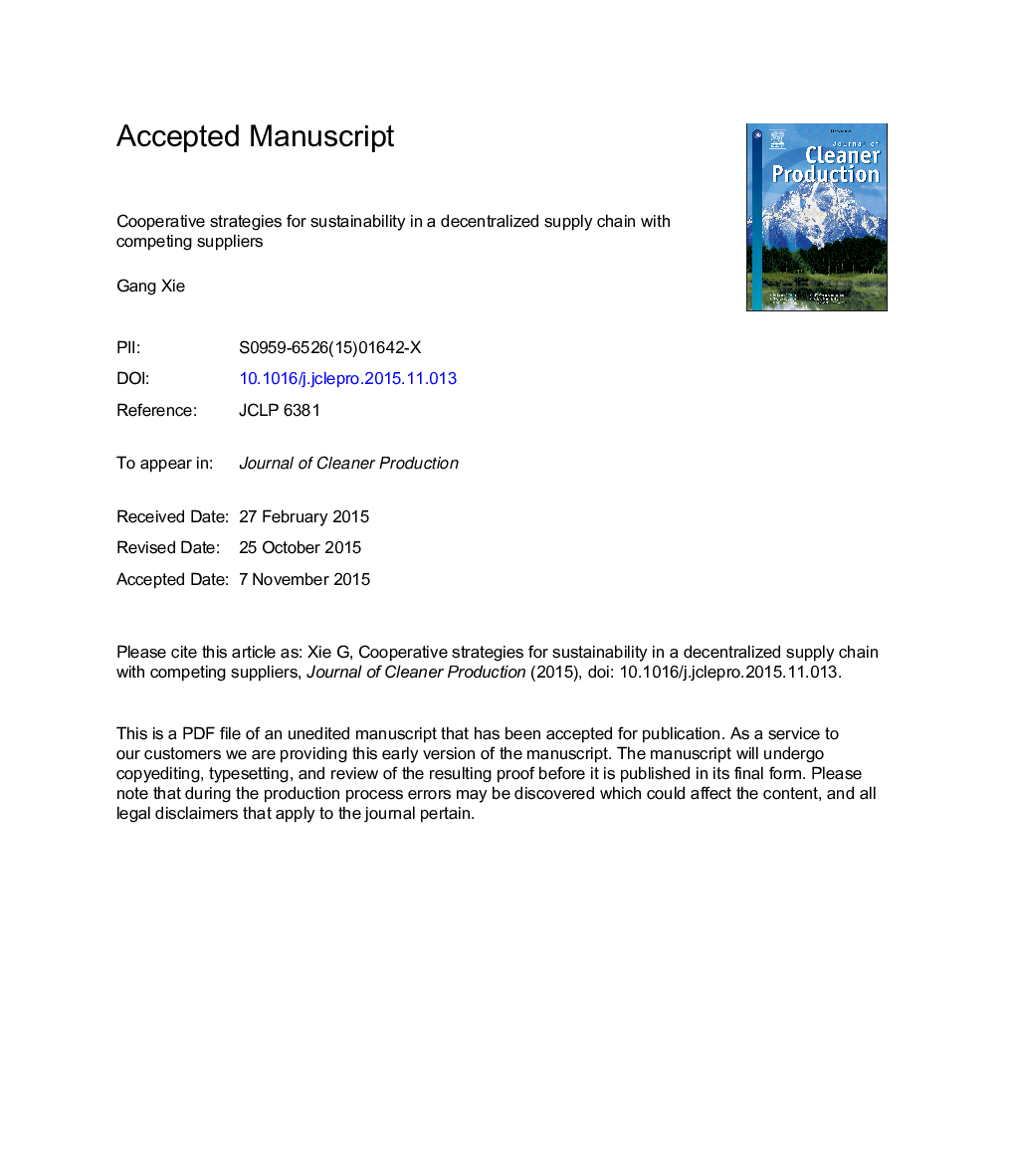| Article ID | Journal | Published Year | Pages | File Type |
|---|---|---|---|---|
| 8103032 | Journal of Cleaner Production | 2016 | 56 Pages |
Abstract
In today's global market, organizations increasingly recognize that they must address the issue of sustainability in their operations. In addition, the decision-making processes surrounding sustainable supply chain management are raising a wide range of theories and claims about how best to address the issue. In this study, mathematical modeling is used to analyze managerial decision-making in terms of improving sustainability in a decentralized supply chain with two competing suppliers. Firstly, the concept of managerial decision-making for competing suppliers is introduced. Next, the mechanism used in the selection of cooperative strategies is described, and the decisions related to demand, energy efficiency and profits are analyzed in different scenarios of cooperative strategy combinations. Also, lump sum transfer contracts are designed for supply chain coordination. An experimental test of an automobile supply chain in China illustrates the impacts of competition intensity on profits, the energy efficiency of environmentally friendly products and consumer surplus. The analysis indicates that the sustainability of the supply chain can be efficiently enhanced through cooperative strategies and parameter adjustments, while tradeoffs should be made by the policy maker before any cooperative strategy combination is advocated. This study extends and complements existing literature with regard to how it is possible to improve sustainability in a competitive environment through cooperative supply chain strategies and parameter adjustments, i.e. enhancing the price of environmentally friendly products, lowering the supplier's share of instinct demand potential and lowering the manufacturer's fixed cost related to energy efficiency.
Related Topics
Physical Sciences and Engineering
Energy
Renewable Energy, Sustainability and the Environment
Authors
Gang Xie,
